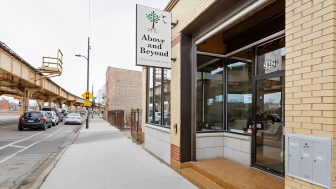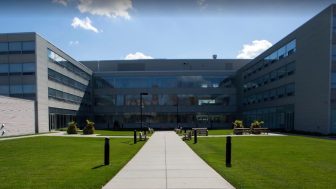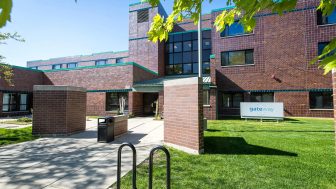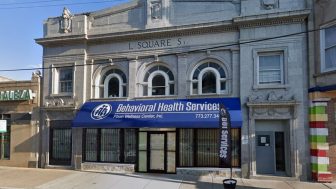Safer Crossroad Comm Correction
3210 West Arthington Street
Chicago, IL 60624
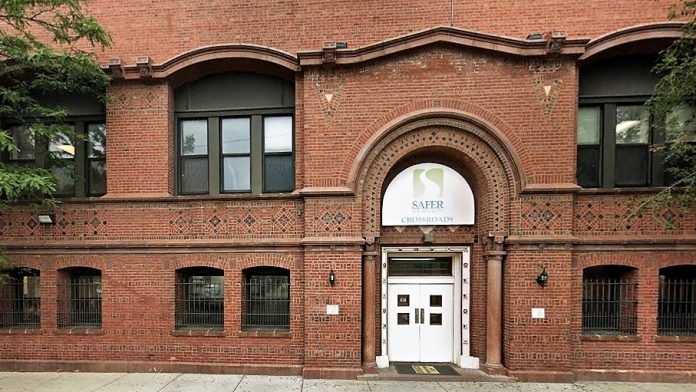
About Safer Crossroad Comm Correction
The Safer Foundation's Crossroads Adult Transition Center (ATC), also known as the Westcare Crossroads Adult Transition Center, is located in a corner of metropolitan Chicago, Illinois. This is a program offered through the Illinois Department of Corrections and primarily serves individuals who have a criminal history. Their programs help participants learn the skills to make a productive transition back into society after serving out their sentence.
This Adult Transition Center opened in 1984. It’s rather large and able to accommodate 330 individuals at any given time.
While living here, you’ll find that there are a range of services to help you take meaningful steps forward in life despite your criminal history.
There are education and vocational programs to help you build relevant skills for your life. You'll also get support with employment skills training and other employment opportunities so that you can support yourself as you work towards Independent living.
You can work towards completing your GED and have support completing higher education programs off site. Some of the off-site vocational training you'll find includes skills development in sought after skills in the culinary arts and building maintenance.
You'll also be supported through religious services, literacy skills development, and engage in community services. You’ll find meaning and a sense of accomplishment in engaging with your community.
There are a host of other programs here, including treatment for mental health struggles you might be experiencing along with substance use battles you're facing. You’ll learn how to manage anger and control your emotions.
The facility itself has a strong sense of community. You’ll participate in holiday events, be encouraged to build meaningful relationships, and enjoy your leisure time in the resource room and library.
Amenities
Private drug rehab provides a comfortable, secure environment that allows you to focus on doing the work to get your life back on track. Benefits include a higher staff-to-client ratio, increased one-on-one time with therapists and healthcare providers, private rooms for clients, and customized forms of therapy.
Addiction Treatment Programs
Some of the most common services offered in a young adult program in Illinois include individual and group counseling, medication management, educational courses, and 12-step programs. These programs are tailored to address the challenges of this stage of life.
Individuals who are struggling with addiction to drugs or alcohol can get support at an adult program in Illinois. Designed for men and women over the age of 18, these programs offer rehabilitation treatment and recovery services.
Each alcohol rehab in Illinois is unique, but most include three basic aspects of treatment: medical detox, psychotherapy, and medication. Through these methods, participants receive treatment for the physical, mental, and emotional aspects of alcohol use disorder.
Men’s rehab in Illinois typically includes individual, group, and family therapies. Group sessions are conducted with men only, which encourages greater vulnerability and sharing opportunities among participants.
Women who have substance use disorders are more likely than men to have co-occurring mental health disorders. Women’s rehab in Illinois often provides treatment for dual diagnosis, so women can get help for their addiction and disorders such as anxiety or depression.
Drug rehab in Illinois is designed to help men and women recover from drug addiction. The length of the program and its intensity vary, based on the individual’s needs. It’s important to find the right program to suit your unique situation and challenges.
Veteran’s rehab in Illinois is specialized addiction recovery that is dedicated to military Veterans. Treatment often addresses substance use and common co-occurring mental health disorders.
Assertive Community Treatment (ACT) is an integrative, community-based care strategy designed to address the needs of persons with severe and/or complex mental illness or behavioral disorders. ACT is typically provided by a multidisciplinary team of medical and mental health care providers, social workers, therapists, and other specialists, including addiction recovery professionals. These services are frequently provided in the home and community to clients in crisis, those who are clinically unstable, and those who are unable or unwilling to travel to a hospital or clinic for in-person treatment.
Levels of Care
Inpatient rehab in Illinois features intensive clinical supervision and a highly structured and supportive environment, meaning this level of care is especially well suited for clients just beginning their recovery journey and those at risk of relapse.
An Illinois dual diagnosis program treats both your mental health and recovery needs. Psychiatrists and addiction specialists work together to address co-occurring disorders, such as depression, anxiety, or ADHD.
